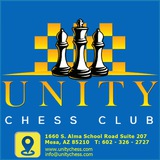📕 #85
37...f5? will be refuted by 38.d4, while 37...Ne6 is a normal move but not the best.
Although 37...Be6! may not seem correct at first sight to some players it is the best! Why is exchanging the opponent's bad bishop the strongest move?
The point is that when we exchange pieces we should not compare the exchanged pieces but compare the position before and after the exchange.
In this position, after Bc4 leaves the board, d3 and b4 become seriously weakened.
A classical instructive example of transposition of advantages.
37...f5? will be refuted by 38.d4, while 37...Ne6 is a normal move but not the best.
Although 37...Be6! may not seem correct at first sight to some players it is the best! Why is exchanging the opponent's bad bishop the strongest move?
The point is that when we exchange pieces we should not compare the exchanged pieces but compare the position before and after the exchange.
In this position, after Bc4 leaves the board, d3 and b4 become seriously weakened.
A classical instructive example of transposition of advantages.
📕 20...a3! 21.b3 Na6!
Now, black knight settles on b4 square to attck a2 and control d5. The strong a3 pawn not only secures b4 for the knight, but also fixes a2 as a weakness.
Now, black knight settles on b4 square to attck a2 and control d5. The strong a3 pawn not only secures b4 for the knight, but also fixes a2 as a weakness.
🔺 #42 👇👇
1.Qf7+ Kh8 2.Re3!+- [2.Rxc2?? Ne2+-+] 2...d4 [2...Bf6 3.Rxc2+-] 3.Rxe5 d3 4.Bd4! [4.Be3+-] 4...Rg8 [4...d2 5.Re8+ Rxe8 6.Qxg7#] 5.Re6 d2 6.Rxc6! dxc1Q+ 7.Kh2 Qd2 8.Rc8+- 1-0
1.Qf7+ Kh8 2.Re3!+- [2.Rxc2?? Ne2+-+] 2...d4 [2...Bf6 3.Rxc2+-] 3.Rxe5 d3 4.Bd4! [4.Be3+-] 4...Rg8 [4...d2 5.Re8+ Rxe8 6.Qxg7#] 5.Re6 d2 6.Rxc6! dxc1Q+ 7.Kh2 Qd2 8.Rc8+- 1-0
📕Unity Chess Multiple Choice 87
B: Ng3 – 11
👍👍👍👍👍👍👍 73%
C: Qe1 – 3
👍👍 20%
A: g5 – 1
👍 7%
👥 15 people voted so far.
B: Ng3 – 11
👍👍👍👍👍👍👍 73%
C: Qe1 – 3
👍👍 20%
A: g5 – 1
👍 7%
👥 15 people voted so far.
📕Unity Chess Multiple Choice 88
B: Nd3 – 13
👍👍👍👍👍👍👍 62%
A: Nf3 – 5
👍👍👍 24%
C: e3 – 3
👍👍 14%
👥 21 people voted so far.
B: Nd3 – 13
👍👍👍👍👍👍👍 62%
A: Nf3 – 5
👍👍👍 24%
C: e3 – 3
👍👍 14%
👥 21 people voted so far.
📘 3...Na5
Kozul is an expert in this sideline with an amazing score of 6.5 out of 7!
Kozul is an expert in this sideline with an amazing score of 6.5 out of 7!
📘 16.Bxd5?
The young Ukrainian GM decreased his decisive advantage by a wrong combination.
16...e×d5 17.N×d5 Be6! 18.Nf6+ B×f6 19.R×d8 B×d8 20.Bf2 with just slightly better chances for white.
He could have started a decisive attack by playing 16.Be4! intending Bxh7 and g5.
A) 16...Ng6 17.f5 N×e5 18.f6 +-
B) 16...g6 17.g5 Nf5 18.B×f5 e×f5 (g×f5 19.Qh2+-) 19.N×d5 +-
The young Ukrainian GM decreased his decisive advantage by a wrong combination.
16...e×d5 17.N×d5 Be6! 18.Nf6+ B×f6 19.R×d8 B×d8 20.Bf2 with just slightly better chances for white.
He could have started a decisive attack by playing 16.Be4! intending Bxh7 and g5.
A) 16...Ng6 17.f5 N×e5 18.f6 +-
B) 16...g6 17.g5 Nf5 18.B×f5 e×f5 (g×f5 19.Qh2+-) 19.N×d5 +-
📘 34...Ra8?
Black decided to prevent the penetration of white queen via a7 by an strange inactive move. He could simply prevent this threat by opening h7 square for his king by 34...h5! and now 35.Qa7 is impossible since black can take the e7 bishop.
Black decided to prevent the penetration of white queen via a7 by an strange inactive move. He could simply prevent this threat by opening h7 square for his king by 34...h5! and now 35.Qa7 is impossible since black can take the e7 bishop.
